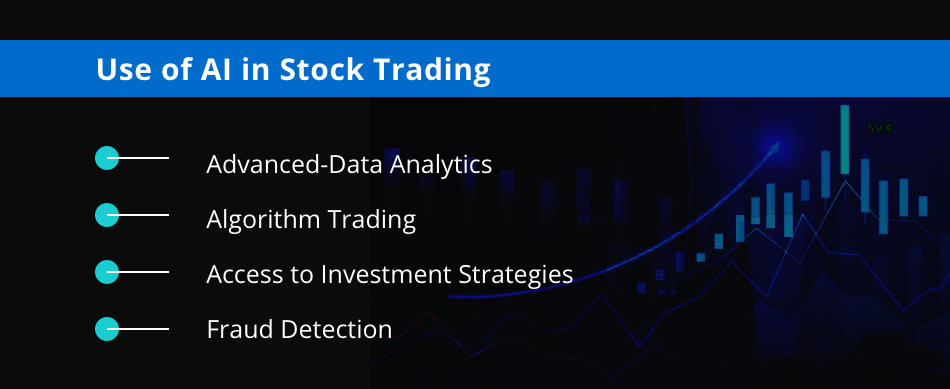20 Best News To Choosing AI Stock Trading Analysis Sites
20 Best News To Choosing AI Stock Trading Analysis Sites
Blog Article
Top 10 Tips To Evaluate The Customer Service Of Ai Platform For Predicting And Analyzing Stocks
Support from the customer can be a key factor in choosing a platform for AI analysis and prediction of stocks. Support that is responsive and reliable is an important factor in solving issues, maximising platform usage and ensuring smooth trading. Here are the top 10 suggestions for assessing the customer support of these platforms:
1. Evaluation of support availability
24/7 Support: Check whether the platform provides round-the-clock assistance. It's crucial, especially for trading on international markets.
Hours of business If there isn't 24/7 support available it is important to ensure that support is in place during your business hours.
Check for holiday coverage.
2. Test Response Times
Initial response. Send an initial test question to support to determine how quickly they'll respond.
Resolution time: Measure the amount of time needed to resolve a problem.
Live chat If live chat is accessible Test its effectiveness and responsiveness.
3. Review the support channels
Multiple channels: Ensure the platform has support available via various channels (e.g., email, phone or live chat, as well as social media, etc.).
Verify that your preferred support channel is solid.
Self-service Solutions: To resolve problems quickly, use an extensive Knowledge Base as well as FAQs and Community Forums.
4. Examine the Quality of Support
Expertise: Ensure that support agents are well-versed in the platform, trading, as well as technical concerns.
Test your support agent's ability to deal with complex issues and escalate them appropriately.
Professionalism - Examine whether interactions with support personnel are helpful, friendly and professional.
5. Make sure you have a dedicated account manager
Premium Support: Ensure that the higher-tier users and institutional customers have access to specialized account managers.
See whether the account manager provides tailored assistance, proactive guidance, and prompt assistance.
Relationship building: Check if the account managers are available and establish lasting connections with users.
Review Documentation
Knowledge base - Ensure that the platform has an organized and searchable knowledge base with tutorials. Tips and guides for troubleshooting.
Video tutorials See if you can find video tutorials on this platform.
API documentation. API documents are important for developers.
7. Evaluation of community and peer support
User forums Find out if there's an active community of users or forums on the platform where users can discuss ideas and suggestions.
Social media groups Find groups on unofficial social networks (e.g. Reddit. Facebook. LinkedIn), where users are discussing the platform.
Community engagement: Find out whether the platform's staff actively participates in community discussions or forums.
8. Evaluate Escalation Processes
Issue escalation: Ensure that there's a defined procedure for elevating unresolved concerns to management or support levels.
Follow-up: Ensure that support has followed-up with regard to a issue after the issue has been resolved to confirm that the issue was fully resolved.
Feedback loop - Verify whether the platform collects feedback from users in order to improve customer service.
9. Test Support for critical situations
Market volatility: Contact support during high-volatility periods to evaluate their ability to respond under pressure.
Technical issues: To find out how support will handle an issue (e.g. log-in problem, data discrepancy), simulate one.
Trade execution: Find out if the support team can help with urgent issues in trade (e.g. delayed execution, unsuccessful orders).
Review User Feedback to find Support
Reviews on the internet: Make use of platforms such as copyright G2 or Reddit for user reviews to determine the overall satisfaction.
Testimonials or Case Studies: Search for reviews or case studies that highlight positive customer experiences.
Complaints: Find out what the platform does with complaints and feedback on support.
Bonus Tips
Support for the trial period: To test the reliability of the platform, you can try its support during a free trial period.
Language support: If you're a non-English speaker, verify that support is available in the language you prefer.
Training and Onboarding: Find out whether the platform provides onboarding sessions or training to help new users get up and running.
It is possible to evaluate customer service for AI analysis and stock prediction platforms by following these suggestions. When you do so, you will be able pick a platform that provides quick, reliable and efficient support. A strong customer service can improve your overall experience and enable you to make the most of the features offered by the platform. Have a look at the most popular the original source for trading ai for blog advice including ai investment app, ai trading, ai for investing, ai stock, ai investing, ai investing, ai stock trading, ai investment platform, ai stock trading app, ai for stock trading and more.
Top 10 Tips For Evaluating The Regulatory Compliance Of Ai Stock Prediction/Analyzing Trading Platforms
The regulatory compliance of trading platforms that employ AI to analyze or predict price movements is a crucial factor. Compliance assures that the system works within the legal frameworks, safeguards user data, and adheres to financial regulations, thus reducing the risk of legal issues or financial sanctions. These are the top 10 suggestions for assessing compliance with regulatory requirements.
1. Verify registration and licensing
Regulatory bodies: Make sure the platform is registered and licensed with relevant financial regulatory authorities (e.g. SEC in U.S.A., FCA UK, ASIC Australia).
Broker partnership: Ensure that brokers integrated with the platform are also properly licensed.
Public records: You may check the website of the regulatory body to find out whether the platform is registered and if there have had any violations over the years.
2. Take Data Privacy Measures Compliance
GDPR If you're operating or serving users within the EU ensure that your platform is in compliance to the General Data Protection Regulation.
CCPA : California Consumer Privacy Act (CCPA) compliance should be checked by users.
Data handling policies: Review the policy on data privacy of the platform to ensure it outlines the methods by which data from users are collected as well as how it is stored and shared.
3. Examine Anti-Money Laundering (AML) Actions
AML Policies The platform should be equipped with solid AML (Anti-Money Laundering) policies that detect money laundering and stop it from happening.
KYC procedures: Find out if the platform uses Know Your Customer (KYC) that verifies the identity of users.
Transaction monitoring: Check if the platform monitors transactions for suspicious activity and if it reports it to authorities in charge.
4. Make sure you're in compliance Trading Regulations
Market manipulation: Make sure that the platform has measures in place to stop manipulating the market, like spoofing or wash trading.
Order types: Check if the platform is compliant with the rules governing different types of orders (e.g. no stop-loss that is illegal to hunt).
Best execution : Ensure that the platform uses best execution methods to make trades at a competitive price.
5. Cybersecurity Assessment
Data encryption: Verify that the platform safeguards user data both while it is in transit as well as when it is in rest using encryption.
Incident response. Verify that there is a clearly defined incident response plan for the platform for cyberattacks as well as data breaches.
Certifications: Determine if the platform holds cybersecurity certifications (e.g., ISO 27001, SOC 2).
6. Transparency and Disclosure
Fee disclosure. Be sure that all fees and charges are clearly stated, as well as any hidden charges or fees.
Risk disclosure: Make sure that the platform provides clear risk disclosures. Particularly for high-risk and leveraged trading strategies.
Performance reporting: Find out whether the platform is precise and transparent performance reports on its AI models.
7. Check for Compliance With International Regulations
Cross-border Trading: If your trading is international it is important to make sure that the platform you use meets all regulatory requirements in each jurisdiction.
Tax reporting: Find out if the platform provides tools or reports that aid users in complying with tax laws (e.g., FIFO rules in the U.S.).
Conformity with international sanctions: Make sure your platform is in strict compliance with these regulations and doesn't permit trading between prohibited countries or entities.
8. Reviewing Audit trail trails and Record-Keeping
Transaction records: For regulatory and auditing reasons, make sure that the platform has complete records of all transactions.
Logs of user activity - Check that the platform is recording all user activities, including logins to the platform, trades executed as well as any changes made to the account settings.
Audit readiness: Determine whether your platform is able to provide the necessary logs and documentation in the case of an inspection by a regulatory agency.
9. Examine whether you are in compliance with AI Specific Regulations
Algorithmic trading regulations: If your platform allows algorithmic trading, be sure that it's in compliance with regulations such as MiFID II in Europe or Reg SCI in the U.S.
Bias & Fairness: Check for any biases that the platform can detect and reduce in its AI model. This will ensure fair and ethical trade.
Explainability: Ensure the platform provides clear explanations for AI-driven decisions and predictions as required by certain rules.
10. Review user feedback and review the regulatory history
User reviews: Use user feedback to determine the platform's regulatory compliance.
Examine the regulatory history to determine if there have been any fines or penalties for violations of rules.
Third-party Audits: Ensure that the platform is subject to third-party inspections to make sure it is in compliance with all applicable regulations.
Bonus Tips
Legal consultation: Consult an expert on the subject to check if your platform is compliant with laws.
Trial period: Take advantage of a free demo or trial period to evaluate compliance features on the platform.
Support for customers: Make sure the platform has support for compliance-related questions or concerns.
Check these points to determine the regulatory compliance and security of your rights. Compliance not only reduces legal risks but also builds trust and confidence in the services of the platform. Read the top best ai stocks to buy now blog for site examples including ai investment tools, best ai stock prediction, ai options trading, ai investment tools, stock predictor, ai in stock market, best ai for stock trading, how to use ai for copyright trading, chart ai trading, ai trading tool and more.